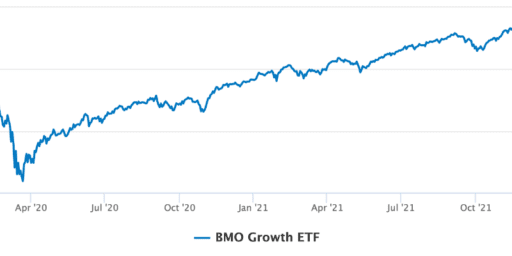Manulife ONE Mortgage Review
As I’ve been looking into using the Smith Manoeuvre strategy, I’ve come across a few mortgage solutions that will fit nicely. Among them include the RBC Homeline mortgage, the First Line Matrix mortgage, and the Manulife ONE (M1) mortgage. The first two mortgages are similar where they have a traditional mortgage portion with a home equity line of credit (HELOC) portion attached to it which increases the credit limit as the mortgage gets paid down. The M1 mortgage, on the other hand, works a bit differently.
How does the M1 mortgage work?
- The M1 mortgage operates like a giant secured line of credit and checking account combined into one. Within the M1 mortgage holds ALL of your debts, including your mortgage, car loans etc. The twist that M1 offers is that you deposit ALL of your INCOME into the M1 account so that any savings at the end of the month works against the DEBT instead of just sitting in your stagnant checking account.
Try the Online Calculator:
- With the extra money left over every month working against the debt, the theory is that your debt will get paid off faster. The M1 website has a calculator that predicts how many years you can shave off your mortgage by using their product.
- I tried the scenario with a $200k home and a $150k mortgage due to be paid off in 21 years. If I were to switch to M1 and apply my $25k in savings against the debt, I could have the mortgage paid off in approximately 9 years. Not bad hey? I’ll bet this could be accelerated even more if you applied the Smith Manoeuvre principles (pay down mortgage with tax deductions).
Advantages:
- Depending on your situation, the mortgage and other debt will inevitably be paid off faster if you can use every extra dollar towards your mortgage.
Drawbacks:
- Rates are fixed at prime with no discount. You can find a variable mortgage that is more competitive at prime – 0.85 (recent mortgage rates). On top of that, since M1 is a giant line of credit, interest is compounded MONTHLY, and not semi annually like conventional mortgages. This makes the gap even bigger between M1 rates and conventional rates.
- Every day spending is withdrawn from a non tax deductible line of credit.
- $14 monthly fee. (really don’t like this)
- Lack of M1 bank machines/tellers.
Who should use this?
- People who have money left over at the end of the month after all bills are paid. You’re debt will most likely be paid down faster than a conventional mortgage.
- People looking for a viable mortgage solution to use with the Smith Manoeuvre.
How would you use this with the Smith Manoeuvre?
- You can create multiple accounts under the M1 plan. If you wanted to start investing using the Smith Manoeuvre with the borrowed money in M1, you can set up a separate account for this to help keep track of the paper trail.
- I’m not sure if this is possible, but ideally, as you pay down the non-deductible mortgage, you would want your “separate” SM account to grow automatically.
Conclusions
- With the rates being higher than conventional mortgages along with the $14 monthly fee (I’m frugal), I don’t think that this product is right for me.
- I think that with discipline, you could pay down a lower rate conventional mortgage quicker than M1 and with no fee.
- This mortgage ends up reducing the pay back period because it applies all of your savings against the mortgage. This will work with ANY mortgage (if you have the discipline). Why not get the RBC Homeline mortgage with lower rates and apply all your savings against that non-deductible mortgage. You’ll get the increased credit limit automatically on the HELOC side. This would act just like the M1 mortgage BUT with lower overall fees and interest.
Need more info?
I have written another article regarding the Manulife ONE mortgage which includes an analysis of the overall cost in the long term. Check out our Manulife ONE calculations, it’s a real eye opener.
The Manulife One website is also full of info, you can check it out here.
Anyone with M1 right now? Care to comment?
I've Completed My Million Dollar Journey. Let Me Guide You Through Yours!
Sign up below to get a copy of our free eBook: Can I Retire Yet?










I have a ManuOne and was thinking of locking the LOC portion into a 5-year fixed term at 1.89%. I’m a small business owner so got approved for the ManuOne fairly easily in 2006. Is locking the balance (currently paying 3.05% variable) a good strategy or can I do better elsewhere?
Hi guys. I’m going to try to make this as simple as possible so you can understand the manulife one and why its the most friendly line of credit/mortgage solution in stead of a normal vanilla mortgage.
It’s a checking account. That means if you put in 5,000 dollars cash for the month you save 3-4% interest on that right away. Just by parking the same 5000 every year you can save 150-200 dollars. That is part of why the fee is 15 dollars. The fee is waived if you have a certain balance I’m told.
It’s an investors line of credit. That means you can have as many sub accounts as you could need. If you have a business or a tax deduction to track, you create a sub account. Every single account gets published every statement with a positive negative balance included.
It’s an optimized mortgage. Normal mortgages are blended equity and principal amortized over 25-30 years. The Manulife One is a no obligation mortgage that can be opened for infinite years. This means it’s cheaper to carry. Vanilla 200k mortgage at 3% 30 years is 843.21 per month to have it paid in full. It only costs $500 a month to carry the same 200k mortgage at 3% for 100 years.
My opinion is – This means a real estate investor can get 3-4% interest on their bank account. The business owner can get 3-4% tax deductions all organized into the same bank account. Then the real estate investor can get 3-4% appreciation on their home for the smallest possible carrying cost. It’s all rolled into the Manulife One.
If your fiscally responsible you will always pay down a mortgage faster than average just like if your a professional golfer you can drive several hundred yards with a cheap club.
Hi all, I need to specifically understand from people that have the ManulifeOne (M1) account that when a “sub-account” is opened if that portion is “re-advanceable”?
I have an M1 account and am struggling to understand this.
I currently have $10K available in the Main M1 Account. I talked to an agent and what they told me is that I would open a sub-account with that $10K as DEBT which I can extract and make an investment. The interest would be tracked separately on the “main” M1 account by notation “Interest paid sub-account 1”. That takes care of the SM need to individually track the interest paid for taxes and capitalizing the interest.
What I would like to know is when I make payments into the Main Manulife One account will the Principal paid down increase the sub-account?
Example:
Month 1 /Day 1: Payment made to main account for $1000.
Month 1 / Day 30: Interest is charged at the end of the month for $500.
Month 2 / Day 1: sub-account available balance “automatically” increased by $500??
Is this how the re-advanceable sub-account works?
I highly recommend the M1 mortgage if you have the discipline to respect the available credit.
There are hundreds of bank machines available through The Exchange Network (almost every credit union), and recently they have reported over 800 new Manulife Bank machines across canada. I see they have been added to a couple of local Mack’s milk. Problem solved.
The Manulife integrated credit card feature is very convenient and likely offsets the $14 monthly fee for most people who will never pay credit card interest again.
You can’t get more simple to run standard financials for your household.
The sub accounts are simple to use and provide clean accounting on investment loans for tax time.
My house will be paid in 7-8 years. I’m laughing.
Stay away from Manulife! I dealt with Jessica at their Alberta office and the lack of professionalism amazed me. She should never deal with anything financial. She is better suited to selling nail varnish at Shoppers Drug Mart.
Frugal Trader – I’m not sure if this is mentioned in the comments above as Im admittedly to lazy to read them all but here goes.
There is alot more flexibility to the Manulife One program than you think. With the Manulife One account you may set up sub accounts which may be fixed or variable interest rates. Inside it I have a fixed rate mortgage with a lower interest rate (comparable to other banks mortgage rates) My smith maneuver account (variable rate) and my main account. Because all my debt is in the sub accounts, the main account where my wife and I collect our income and all our monthly spending comes out of sits in the positive collecting 1.5% (much nicer than your standard chequing account) Once a year I can make up to a 20% lump sum to the original principle value of the mortgage, and the smith maneuver account being variable can be withdrawn from or paid down whenever I want. The flexibility of the sub account system, the decent interest on positive values, and the ability to lock in your interest at a lower rate on some or all of the debt in the account pulls the M1 ahead as a clear winner in my humble opinion.
One important thing to remember is that line of credit interest is charged monthly while mortgages tend to compound semi annually. When you consider the lower rate of a competitive variable rate mortgage and the favorable interest compounding the benefit of the M1 account is really minimal, even less so with monthly fees attached. Also, in my experience many people will find they are not paying anything down as paying off a line of credit requires a LOT of discipline.
Just ran some #s myself and it’s VERY sensitive to the amount you spend monthly. You are right, it’s basically dependant upon you managing to sock away X thousand dollars a month that sits in the mortgage. It’s basically an open mortgage that requires the same discipline as doubling up on a closed would.
If I’m going to do that, then I’ll just double up the payments instead and if i DO ever need that double up $ it’s available on the HELOC.
Cheers
Ozone T,
If you can afford to pay your mortgage down by $30,000 annually plus maximize your RRPPs, and fully enjoy your discretionary spending, including home renovations, you would appear to be earning far more than a “decent” income. Since you could have paid your original mortgage in about 5 years, based on the numbers you have quoted, the interest rate hardly matters. However for anyone who does not have the income to pay their mortgage so quickly, a lower interest rate can indeed make a HUGE difference to their ability to pay down their mortgage. For some folks the $80 – $100 savings that a lower interest rate brings makes all the difference in reducing their mortgage amortization.
DAvid
We have had the M1 for about 18 months now. We transferred from a fixed rate, 7 year term with RBC. Our mortgage owing was $112,000 when we moved to the M1. We are now at $67,000. We have a decent but not extraordinary combined income, and we have also managed to max out our RRSP contributions for the last several years, as well as have reasonable discretionary spending (e.g., photography equipment, house work, etc.). While I’m sure the mathematics of more advanced financial schemes may work, my wife and I value our time and simplicity, and frankly, I could care less about devoting time to financial minutiae. So, from that point of view, the M1 works nicely for us.